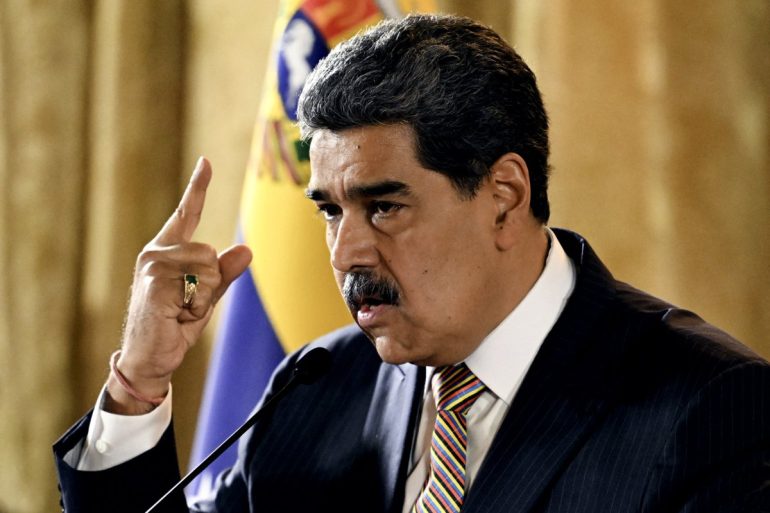On September 1, 2025, Venezuelan President Nicolás Maduro declared that he would “constitutionally declare a republic in arms” if U.S. forces stationed in the Caribbean attacked Venezuela. This statement, made during a news conference, comes amid heightened tensions as the U.S. expands its naval presence in the region to combat Latin American drug cartels. Maduro described the U.S. military buildup as an “extravagant, unjustifiable, immoral, and absolutely criminal and bloody threat,” claiming it targets Venezuela with “1,200 missiles” from eight military vessels.
The U.S. Navy currently has two Aegis guided-missile destroyers, the USS Gravely and USS Jason Dunham, in the Caribbean, alongside the destroyer USS Sampson and the cruiser USS Lake Erie in Latin American waters. This week, three amphibious assault ships carrying over 4,000 sailors and Marines are set to join them. The deployment aligns with President Donald Trump’s push to use military force against cartels blamed for smuggling fentanyl and other drugs into the U.S. One Venezuelan drug trafficking group is among the eight Latin American organizations labeled as terrorist groups by the Trump administration, though no direct invasion of Venezuela has been announced.
In response, Maduro has mobilized Venezuelan troops along the country’s coast and its border with Colombia, urging civilians to enlist in a militia. “In the face of this maximum military pressure, we have declared maximum preparedness for the defense of Venezuela,” he stated. Venezuelan Foreign Minister Yván Gil, speaking at a virtual meeting of the Community of Latin American and Caribbean States, called the U.S. deployment a “false narrative.” Citing a United Nations report, Gil noted that 87% of Colombian cocaine is trafficked through the Pacific, with only 5% passing through Venezuela. He warned that the U.S. presence “threatens the entire region” and could lead to widespread destabilization.
The escalation follows ongoing disputes over Maduro’s legitimacy. He claims to be the rightful winner of Venezuela’s July 2024 presidential election, but credible evidence suggests otherwise, leading the U.S. and other nations to refuse recognition of his presidency. Maduro, now in his third term, accused U.S. Secretary of State Marco Rubio of being a “warlord” pushing for conflict to overthrow his government. However, he also noted that Venezuela maintains two lines of communication with the Trump administration, one through the State Department and another via Trump’s envoy, Richard Grenell.
The U.S. has accused Maduro of leading a drug cartel and has raised the bounty for his capture to $50 million. Meanwhile, Venezuela’s political opposition, led by María Corina Machado, has supported the U.S. naval deployment, calling it “the right approach” to counter Maduro’s “criminal enterprise.” Maduro warned that any U.S. military action would “stain” Trump’s “hands with blood,” arguing that regime change policies have failed globally and cannot be imposed on Venezuela.
As tensions rise, the region braces for potential conflict, with Venezuela’s government framing the U.S. presence as an existential threat and rallying its forces for defense.
